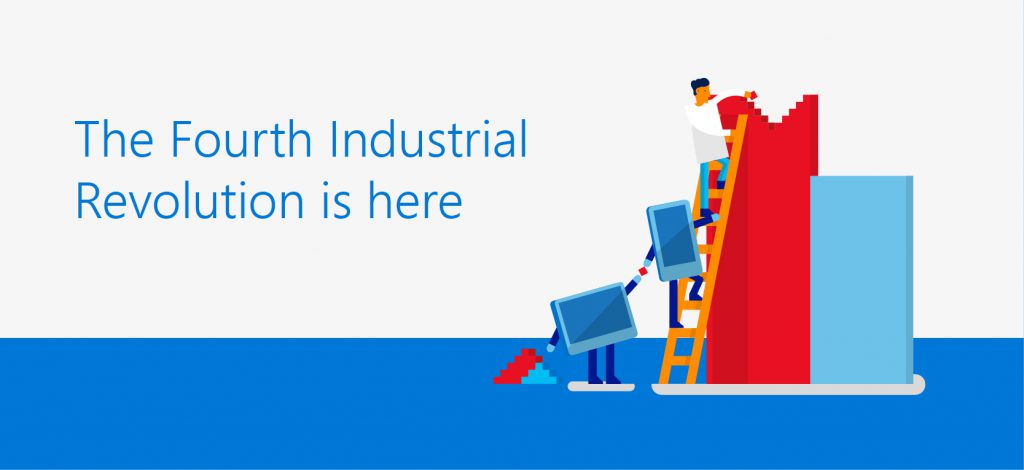The Fourth Industrial Revolution – making disruption work for you

The Fourth Industrial Revolution. It's a big topic. Big enough for it to have played a central role in the World Economic Forum's Industry Strategy Meeting in June, and for it to be a key topic in the UK Regional session at Microsoft Inspire.
But what is the Fourth Industrial Revolution (4IR)? Let's start by pointing out that it's not IoT or big data. It's not Factory 4.0 or the smart factory. It's all of them - and more. The first industrial revolution mechanised production. The second created mass production. The third automated it. Now, the fourth is taking that digital model even further - faster than anyone could have expected. Along the way, it's disrupting every industry. Companies that used to be leaders in their sectors are now also-rans; start-ups, such as OnDeck and LendFriend, have become successful in a matter of months instead of years.
Change is here... and this time it's good.
The World Economic Forum puts it best: "The change brought by the Fourth Industrial Revolution is inevitable, not optional. And the possible rewards are staggering". It so happens that a lot of businesses have already started to cotton on to that fact. According to IDC, 70% of the top 500 global companies will have dedicated digital transformation and innovation teams by the end of this year.
It all adds up to a UK market opportunity worth around $55 million - and 4IR's just getting started, so it's likely that the future will hold even more opportunity.
So, where can you expect the big wins to come from? Probably from three main areas. Better use of information and smarter collaboration are set to give customers better experiences. The same elements should also sharpen up companies' approaches to innovation and creativity, so it's likely that there will be a change in the way they design and market products and services. In addition, these factors - as well as creative use of IT - are improving logistics, the supply chain and time-to-market.
Companies expect the world...
Some research by PwC suggests that companies agree. They expect big things of 4IR. Around 80% expect it to improve planning and control, while over 60% believe it'll improve customer satisfaction and make production more flexible. Plus, around half say it will reduce time to market . Many industry experts believe that 4IR will have a positive effect on society across the world as well.
Let's give them the stars as well
That all sounds like good news for Microsoft partners. To quote Judson Althoff, our Executive Vice President, Worldwide Commercial Business: "Devices, intelligence, the cloud, the rich cloud services that we bring to market together...these combine to drive digital transformation. It's a new world of opportunity for all of us." And together, we're in a great position to go after this opportunity. As our CEO Satya Nadella says, "We'll capture this by coming together to address customer needs through four digital transformation outcomes: modern workplace; business applications; data and AI; and infrastructure and apps."
This means that you'll be able to deliver the exciting new apps and services that 4IR will depend on, confident that you can help people to work together anywhere, yet still be secure.
We'll show you how we can all take advantage of the 4IR opportunity
The Fourth Industrial Revolution is an exciting prospect, with its potential to transform your customers - and your own businesses. Over the next few weeks, this series of blogs will bring you insights into its likely impact and how we can help you, our partners, turn it to your advantage. Watch out for the next in the series, and download our Fourth Industrial Revolution infographic for more information.
Comments
- Anonymous
October 22, 2017
Fruition! Great news :)